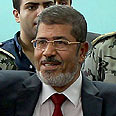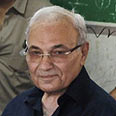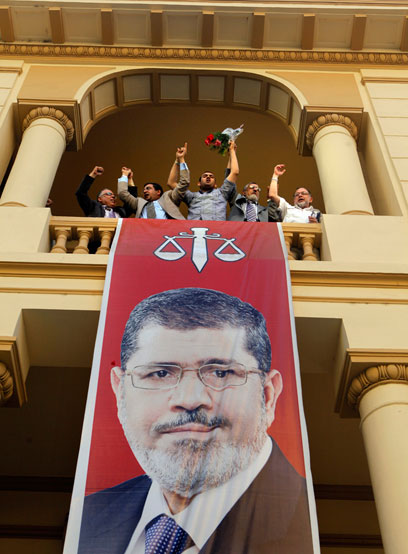

CAIRO – Mohamed Morsi was declared Egypt's first Islamist president on Sunday after the freest elections in the country's history, narrowly defeating Hosni Mubarak's last Prime Minister Ahmed Shafik in a race that raised political tensions in Egypt to a fever pitch.
The country's last four presidents over the past six decades have all came from the ranks of the military. This is the first time modern Egypt will be headed by an Islamist and by a freely elected civilian.
The election commission said Morsi won with 51.7% of last weekend's run-off vote versus 48.3 for Shafiq. Turnout was 51%. Voter turnout in the first round stood at 46%.
Related stories:
- Egypt liberals: US backs Islamists
- Analysis: A whole new Egypt
- 'Egypt must exercise sovereignty in Sinai'
Morsi succeeds Mubarak, who was overthrown 16 months ago after a popular uprising. The military council which has ruled the biggest Arab nation since then has this month curbed the powers of the presidency, meaning the head of state will have to work closely with the army on a planned democratic constitution.
Thousands of Brotherhood supporters burst into cheers in Cairo's Tahrir Square, waving national flags and chanting "Allahu Akbar!" or God is Great, greeting a dramatic victory.
"Say! Don't fear! The military must go!" crowds chanted.
Egypt's first ever democratic presidential elections have been hailed as historic in the Middle East, but are unlikely to end the internal power struggles between the army, Islamists and others over Egypt's future.
"We got to this moment because of the blood of the martyrs of the revolution," he said. "Egypt will start a new phase in its history."
Farouk Sultan, the head of the commission, described the elections as "an important phase in the end of building our nascent democratic experience."

'Historic moment.' New Egyptian President Morsi (Photo: AP)
Egyptian security forces deployed en masse across Cairo in an attempt to prevent riots following the results.
The police have been instructed to "exercise all necessary force" to prevent public disorder. Security forces are on high alert in other provinces as well.

Tahrir Square celebrations after Morsi declared president (Photo: EPA)
Many Egyptians, and millions across the region, would have seen a Shafik win as a mortal blow to last year's Arab Spring revolt, despite his assurances of also wanting an inclusive government.
Morsi, a 60-year-old, US.-educated engineer who spent time in jail under Mubarak, won the first round ballot in May with a little under a quarter of the vote. He has pledged to form an inclusive government to appeal to the many Egyptians, including a large Christian minority, who are anxious over religious rule.
The military council will retain control of the biggest army in the Middle East, whose closest ally is the United States. Morsi has said he will respect international treaties, notably that signed with Israel in 1979, on which much US aid depends.
"President Morsi will struggle to control the levers of state," Elijah Zarwan, senior policy fellow at the European Council on Foreign Relations, said in Cairo.
"He will likely face foot-dragging and perhaps outright attempts to undermine his initiatives from key institutions. Faced with such resistance, frustration may tempt him fall into the trap of attempting to throw his new weight around," Zarwan told Reuters. "This would be a mistake.
"His challenge is to lead a bitterly divided, fearful, and angry population toward a peaceful democratic outcome, without becoming a reviled scapegoat for continued military rule."
Egypt's military ruler Field Marshal Hussein Tantawi congratulated Morsi on his presidential victory, state television said.
Eldad Beck is Ynet and Yedioth Ahronoth's special correspondent in Cairo.
Roi Kais, Reuters, AFP and AP contributed to this report
- Receive Ynetnews updates
directly to your desktop















